Tool Search: Students by Assessment Proficiency
The Students by Assessment Proficiency counts the number of assessments a student received a particular result on. This allows you to look for areas where each student struggled and target subject-level interventions for these individual students.
Only students with an Early Warning Curriculum score between 50 and 100 are included in the chart.
This report is only available for district users who have purchased the Campus Analytics Suite.
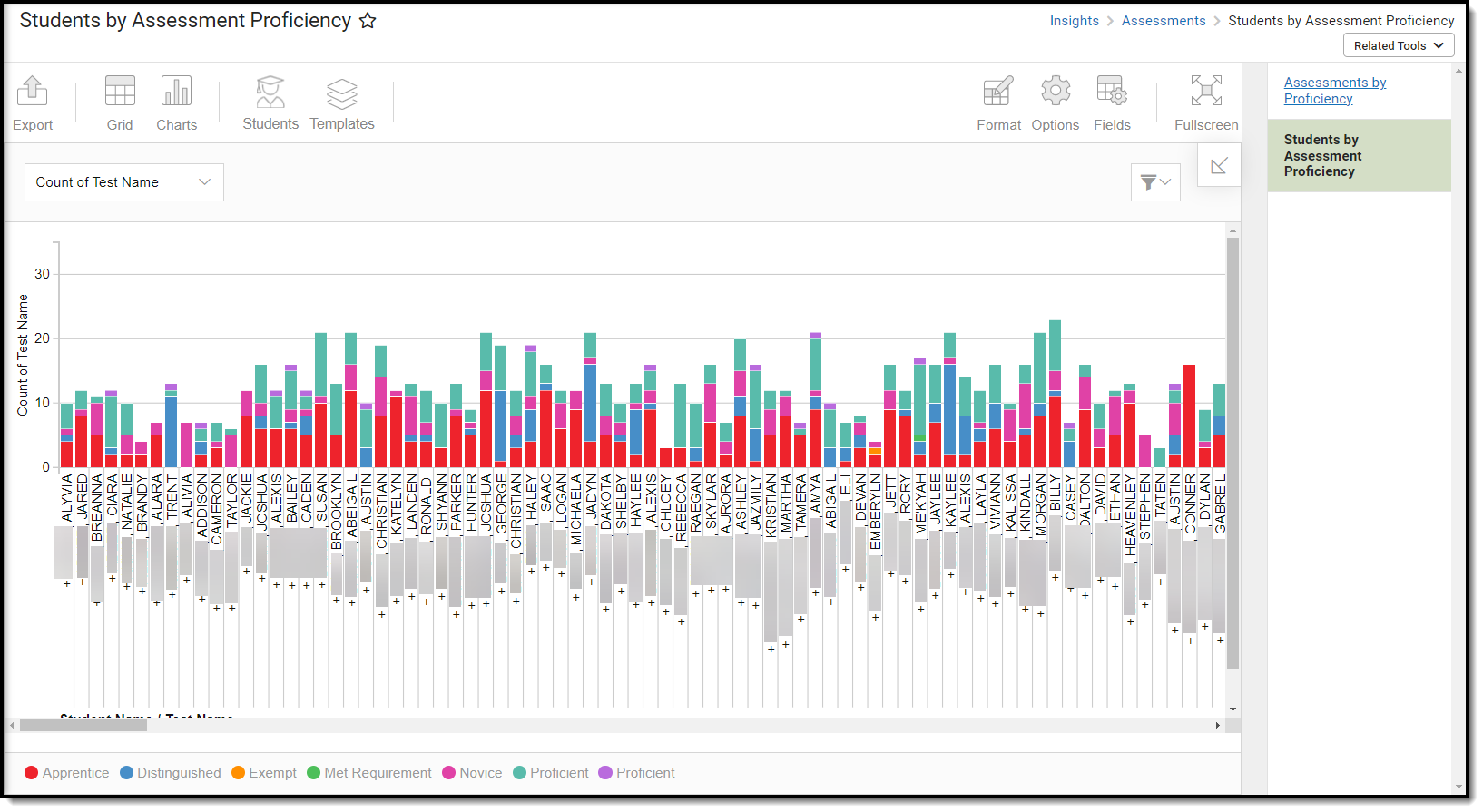
To view the report, you must have at least R(ead) tool rights for Assessments by Proficiency. You must also have calendar rights assigned for any calendar(s) reporting data.
NOTE: Insights visualizations may contain PII and include data for tools a user may not have rights to access.
Understanding the Report
Each bar in the graph displays a count of assessments, with each color-coded section of the bar indicating a count of the proficiency they earned. This allows you to identify students with significantly lower-scoring proficiency levels easily.
Double-clicking a colored section of a bar in the bar graph will show you all of the data that makes up that section.
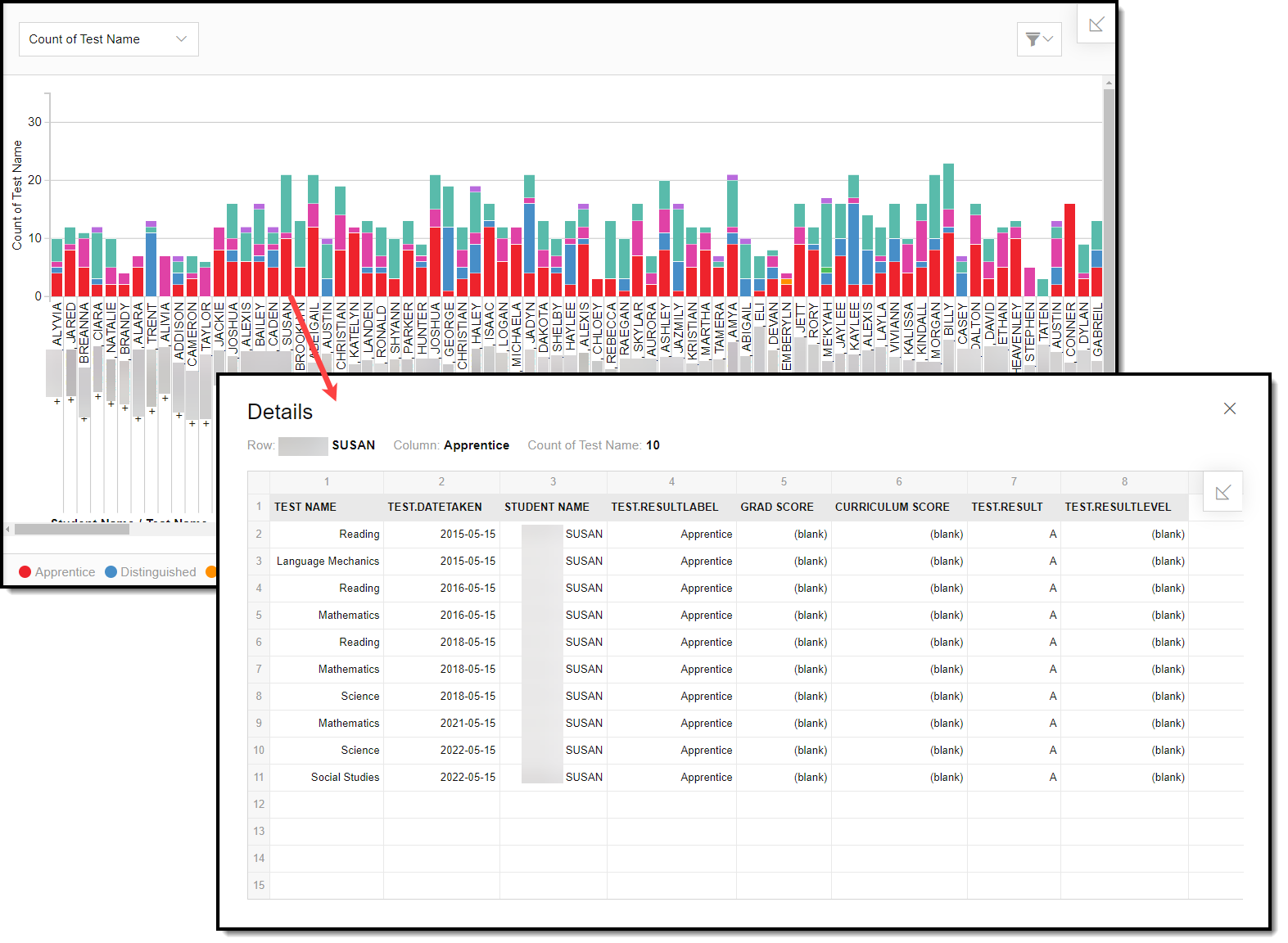
You can remove and filter any data from the bar graph by clicking the  button, selecting the type of data you wish to filter, and unchecking data you wish to remove from the graph.
button, selecting the type of data you wish to filter, and unchecking data you wish to remove from the graph.
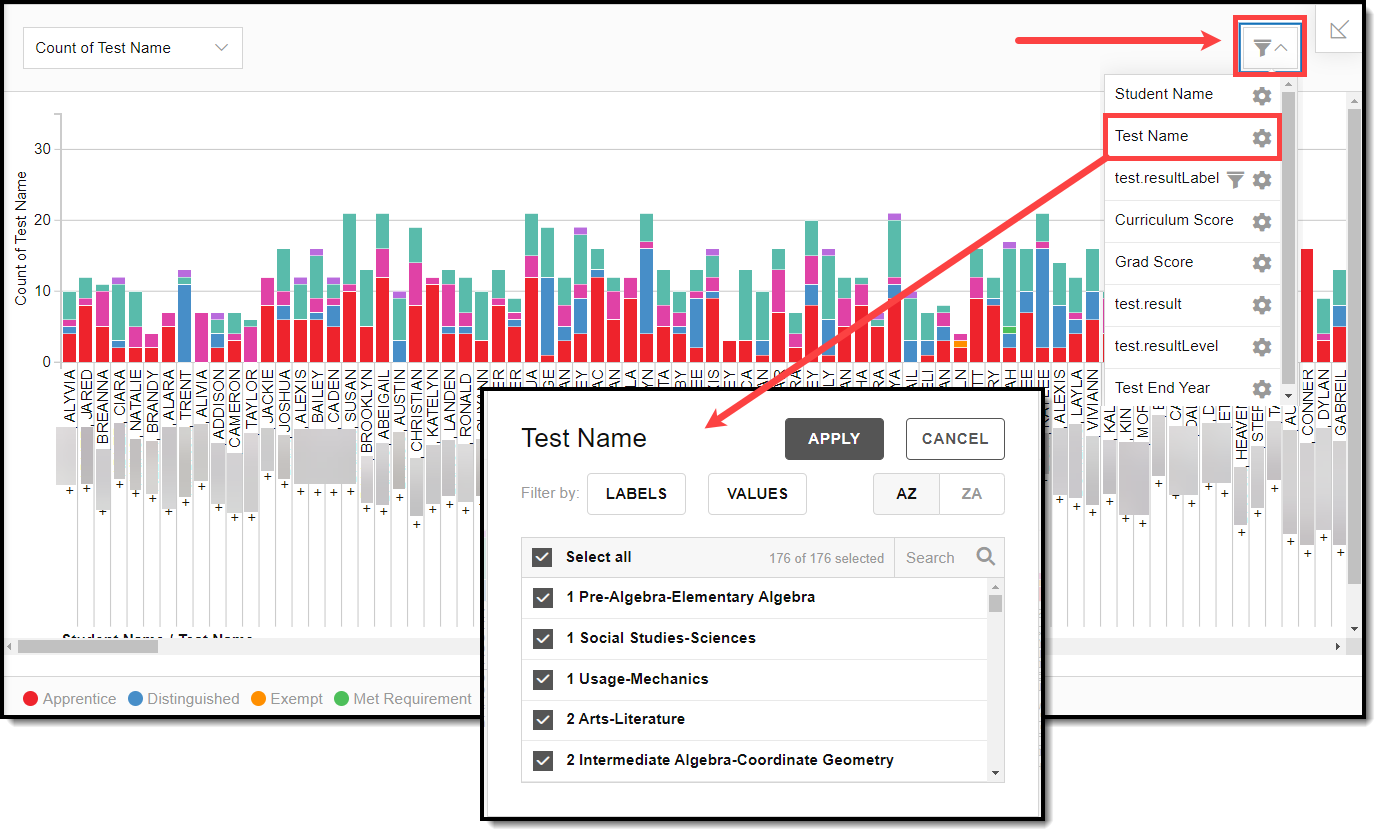
Filtering Chart Data
You can filter chart data to only students in your Early Warning Watchlist, Counseling Caseload, and/or a specific Student Ad Hoc filter by clicking the Students button and selecting any combination of these options.
Ad Hoc Queries and Selection Editors are supported in Insights by filtering from the Student panel.
Pass-through SQL Queries are not supported in Insights.
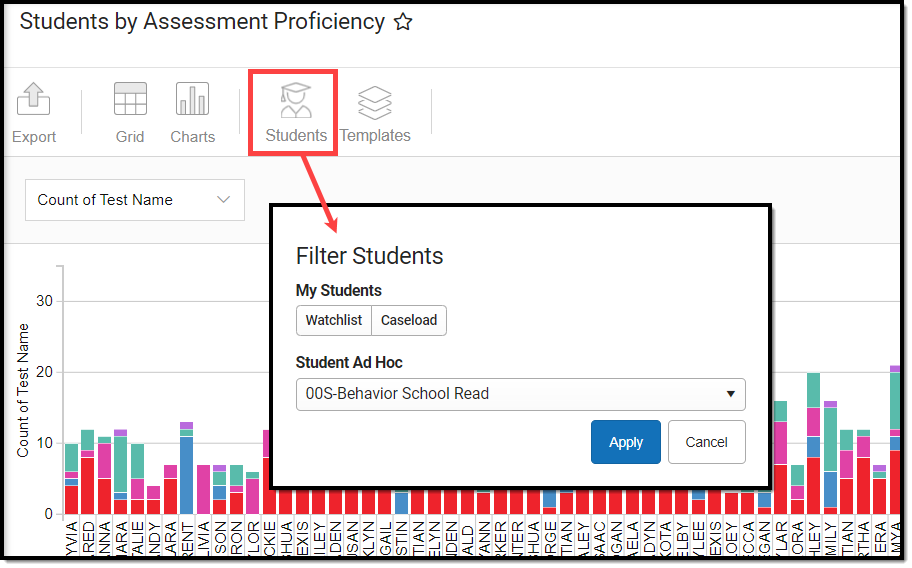
Creating Templates
Templates allow you to save all filtering and formatting options you have set for a chart and have these options automatically applied each time you select a template. Templates are chart-specific, meaning any templates created for a chart are only available and only apply to the chart for which they were created.
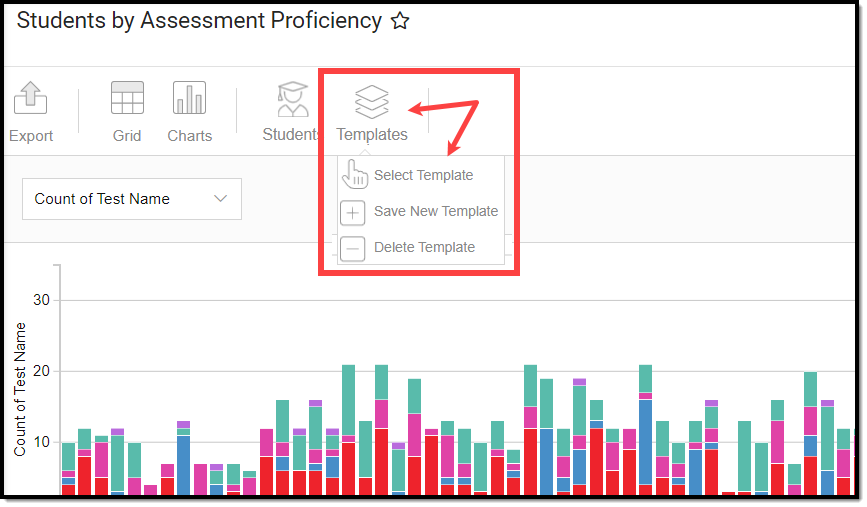
For example, if you filter the chart data by Watchlist in the Student option (see section above) and modify any formatting and field options (any options shown below), all your selections can be saved as a template by clicking Templates and selecting Save New Template.
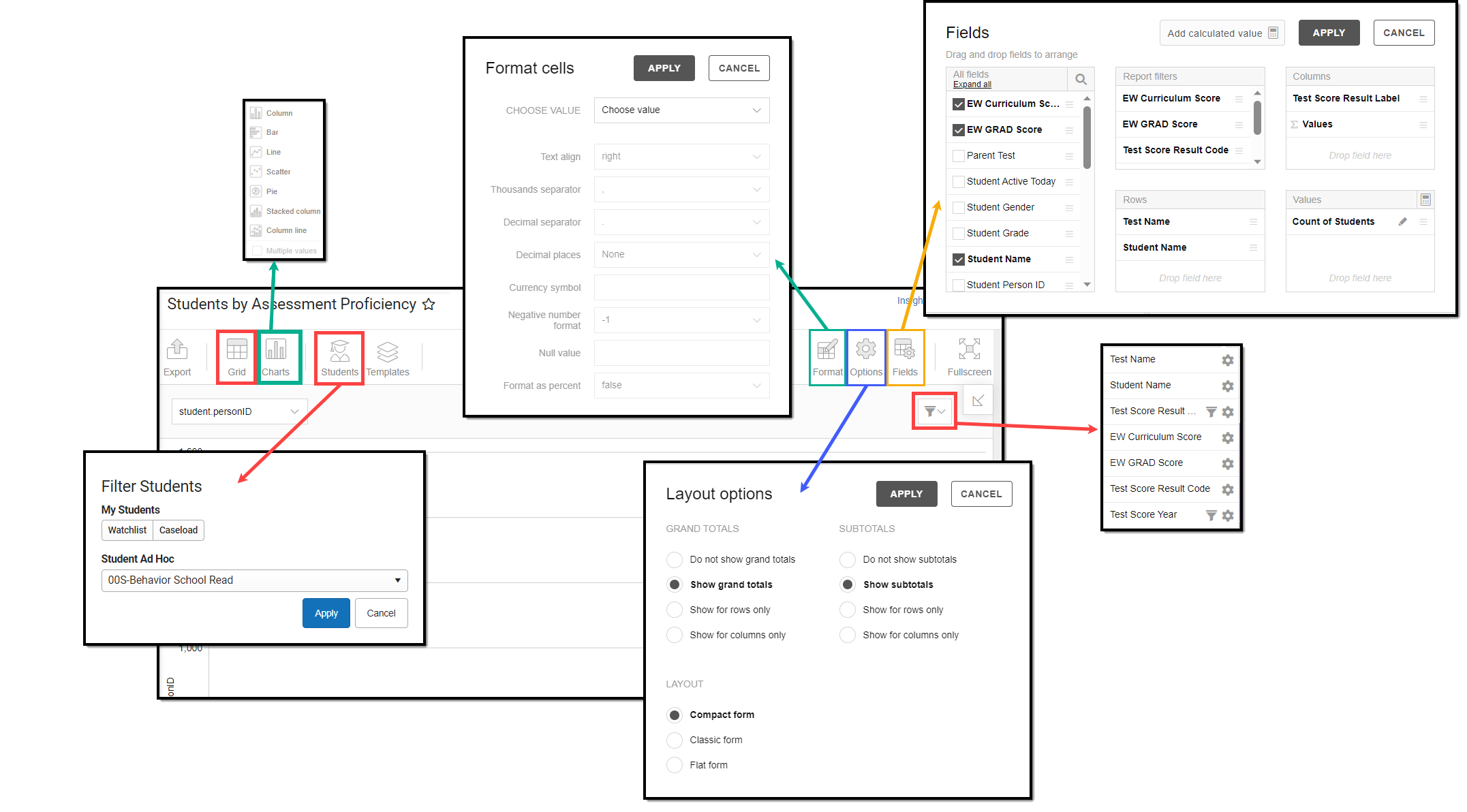
Once saved, each time you return to this chart you can automatically apply these options by clicking Select Template, choosing the template, and selecting Apply.
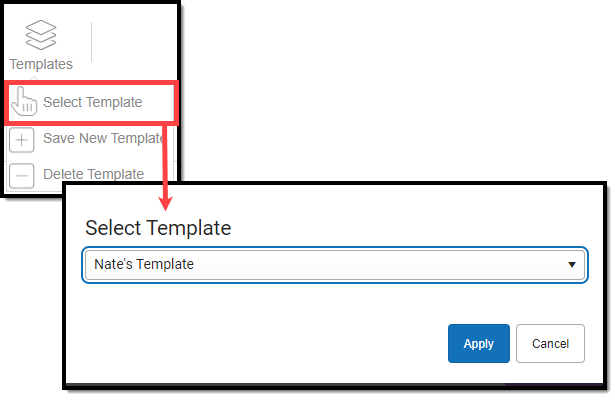
Additional Report Options
The table below directs you toward additional information about the available on-screen options.
| Option | Description |
|---|---|
Grid and Chart | Report data can be viewed in a grid or other visualization charts. See this article for more information. |
Format | Format options allow you to modify how cells represent data within the report. See this article for more information. |
Options | The Options menu gives you layout options for how you would like the table to be displayed (Layout), how grand totals are displayed in the table (Grade Totals), and how subtotals should be displayed (Subtotals). See this article for more information. |
Export | The report can be exported to a number of different formats by clicking the Export icon and selecting an option. See this article for more information. |
Fields | The Fields icon allows you to modify the order of the fields in the report, add or remove fields from the report table, and modify which fields are used in rows or columns. See this article for more information. |
